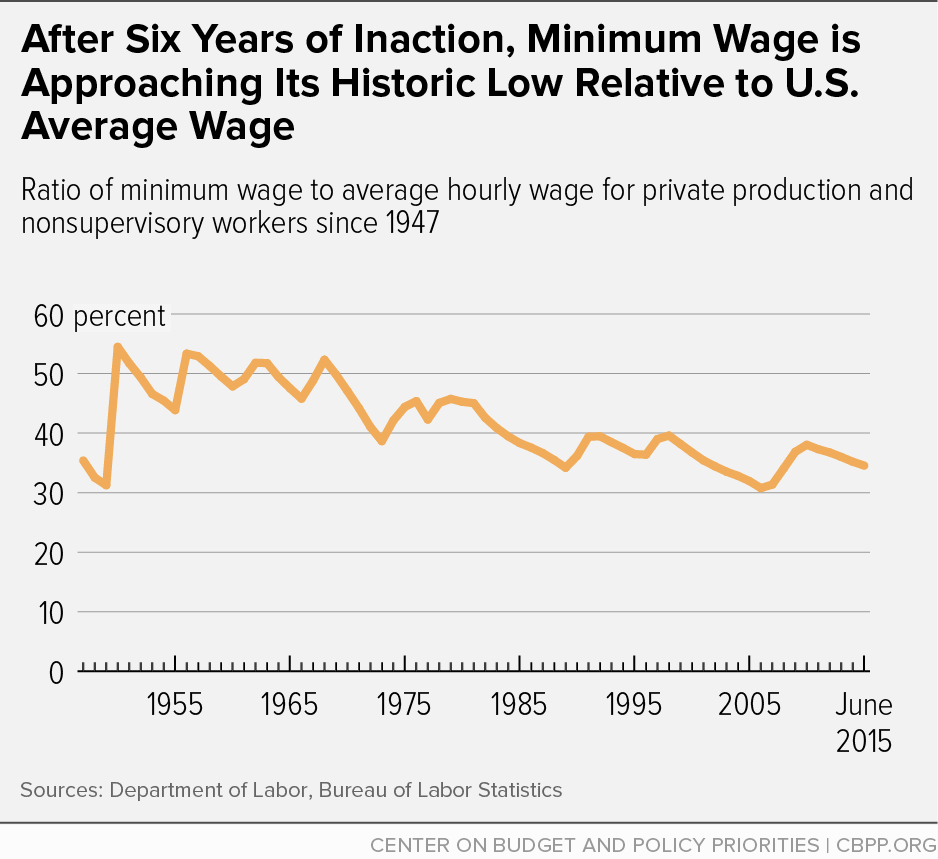BEYOND THE NUMBERS
Today marks six years since Washington last raised the minimum wage, to $7.25 per hour, and — as inflation has reduced its value over time — it continues to fall from an already low level relative to average wages in America.
That we’ve now gone six years without a minimum wage increase is both troubling and ironic, since it comes at a time when an increasingly broad array of policymakers and analysts are expressing alarm about both stagnant wages and the wide disparities between rich and poor.
The last increase, on July 24, 2009, did not set the minimum wage at a high level to begin with. At $7.25, it was only 39 percent of average hourly wages for private, nonsupervisory workers, a low level by historic standards. In the 1950s and ‘60s, the minimum wage averaged 50 percent of average wages. Today, it has shrunk to below 35 percent of average wages, and it’s approaching its lowest level in recent history by this measure, as the chart shows.
To be sure, a growing number of states and localities have raised their minimum wages in the absence of federal action, though typically to levels well below half of average wages. Either way, such steps are no substitute for an adequate federal standard. A federal minimum wage reflects a longstanding commitment to the principle that all of America’s workers should earn wages that meet a basic standard.
Today’s unhappy anniversary highlights not only that the minimum wage desperately needs an increase but also that, once an increase is enacted, policymakers should index the wage level to the growth in wages thereafter. Maintaining a wage floor — after it’s set at a sufficient level — through small, consistent, and predictable steps makes it easier for employers to absorb any wage increases.
Legislation by Senator Patty Murray, ranking Democrat on the Senate Health, Education, Labor and Pensions Committee, and Rep. Bobby Scott, ranking Democrat on the House Education and the Workforce Committee, takes this approach, raising the minimum wage to $12 in 2020 — close to half the projected average wage that year — and then indexing it to a broad measure of wages.

